The IT sector thrives on innovation, problem-solving, and a keen eye for detail. These very skills are often hallmarks of neurodivergent individuals, a group encompassing those with autism spectrum disorder (ASD), attention hyperactivity disorder (ADHD), dyslexia, and other neurodevelopmental or neurological conditions. While estimates vary, research suggests that as much as 15-20% of the global population is neurodivergent.
A striking recent study of young workers has found that more than a third (38%) of 16–24-year-olds self-identify with neurodivergent conditions. And in fact, diagnoses of both ASD and ADHD have been consistently rising – research shows that diagnosis of ADHD in adult men under 30 has increased twenty-fold between 2000-2018. Similarly, a 2021 UK study found a 787% rise in the number of diagnoses between 1998 and 2018. As such, we can assume that neurodivergent talent makes up a sizable portion of companies’ current and potential workforce (even if they don’t officially disclose their diagnosis). Is this a good thing? A bad thing? Do you need to care?
Neurodivergent individuals often have unique perspectives and thinking styles. They can see patterns, solutions, and ideas that others might miss, driving innovation and problem-solving within your organization. The presence of these unique strengths within neurodivergent population is well documented in academic literature. Research has found that as many as 60% of individuals with autism have so-called special isolated skills in math, science, memory, reading, music, or art. These skills usually far exceed those of the neurotypical population and according to Harvard Business Review, lead to a 30% increase in productivity seen in neurodivergent teams.
MOTIFE explores the topic of neurodiversity in IT with 3 questions to the expert, Dominika Pikul from Brain Architects. Read further to find out about myths associated with neurodiversity and best practices to build neuro - inclusive work environment.

Dominika Pikul: Few companies that implemented support programs for neurodivergent individuals have seen some amazing results in terms of productivity and studies by Microsoft and SAP have shown that neurodivergent employees excel in IT roles. Their unique cognitive styles, often stemming from underlying neurobiological differences, can bring fresh perspectives and strengths to the table. For example, individuals with autism spectrum disorder (ASD) often have enhanced perceptual processing. This means they may notice minute details others miss. It is easy to imagine how a software tester meticulously examining lines of code can identify a critical error that could have caused a major system crash.
Other than exceptional attention to detail, many neurodivergent individuals, particularly those with ASD, excel at identifying patterns. This can be attributed to increased connectivity in certain brain regions involved in forming connections between disparate pieces of information. In the IT world, this translates to spotting patterns in complex datasets, leading to more efficient algorithms or uncovering hidden security vulnerabilities.
Studies have also shown that individuals with attention deficit hyperactivity disorder (ADHD) are more likely to generate creative ideas due to their tendency to “think outside the box” and make novel connections between ideas. This may be because people with ADHD tend to have less immediate filtering of information in their brains, which allows them to make more connections between seemingly unrelated ideas.
Check out also: Krakow IT Market Report 2024

Dominika Pikul: The IT sector thrives on skills often associated with neurodiversity. However, several myths persist, hindering the inclusion of neurodivergent individuals, particularly autistic women.
The misconception that ASD is almost entirely a male condition (the most recent data points to the male-to-female ratio of 3:1) leads to underdiagnosis and without a diagnosis, autistic women may not receive support or accommodations they need to thrive in the workplace, especially if these workplaces don’t promote neuro-inclusion. Secondly, existing biases against "difficult" women or those lacking traditional social skills can hinder hiring and promotion opportunities, leading to frustration and impacting mental health. And thirdly, social pressure to conform can lead autistic women to internalize their struggles with anxiety or sensory overload which can easily lead to serious burnout.
The other myth revolves around communication. It is true that social interaction can be challenging for some, but certainly not for all neurodivergent people. Many excel in one-on-one interactions or written communication. So rather than deciding that a person with ASD won’t like to share their opinion or ideas, it is good to think about providing different means of communication.
Check out also: Krakow IT Market Report 2024
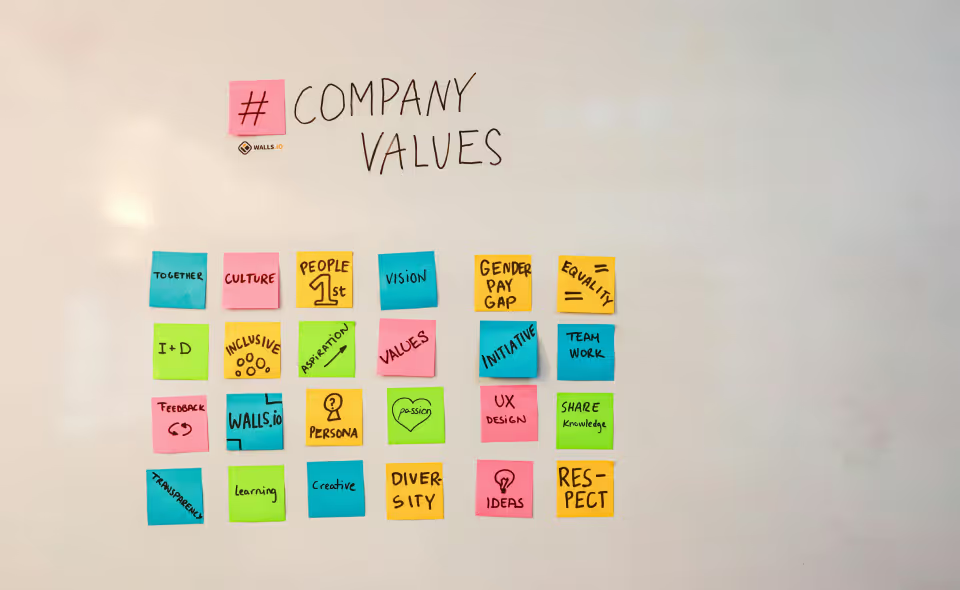
Download a free extract from the Krakow IT Market Report 2024 - a table discussing main neurodiversity conditions and how to adapt them at workplace.
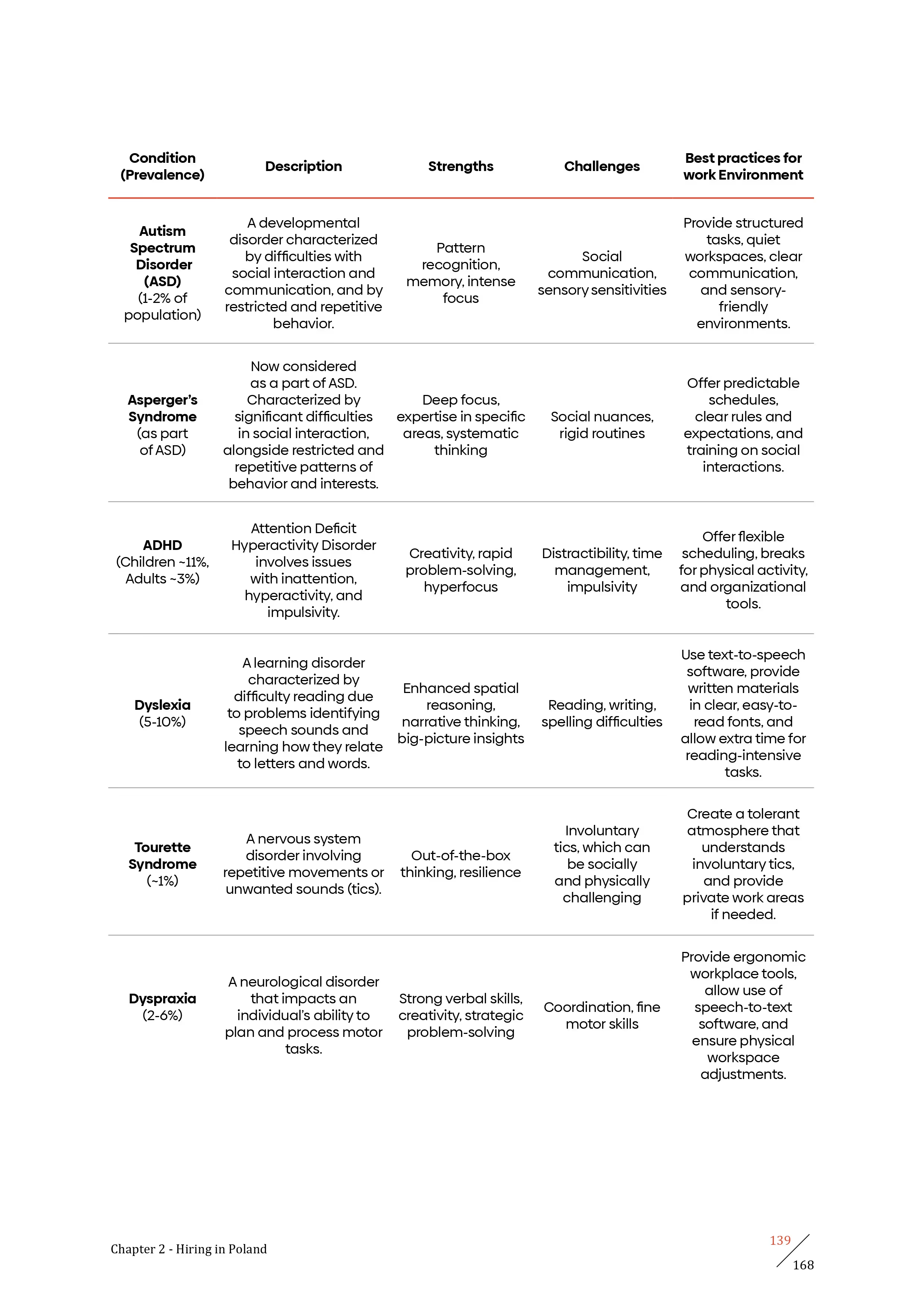
Learn more about what international companies have achieved with their Krakow tech labs by downloading the Krakow IT Market Report 2024.
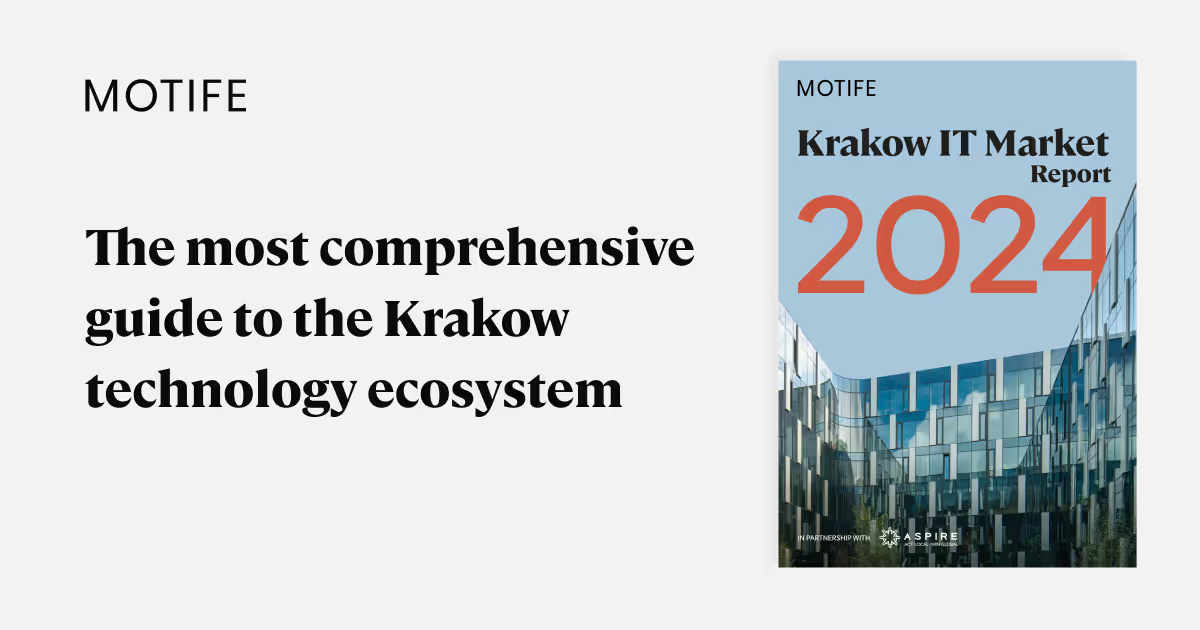
If you are interested in setting up your own engineering hub in Poland, contact us at MOTIFE to learn more.
If you are looking for interesting job opportunities in tech companies in Krakow and remote, check out open roles at motife.com/jobs.

Dominika Pikul: The first step in building a neuro-inclusive culture is raising awareness and dismantling stereotypes through education. Negative stereotypes surrounding neurodiversity can create a culture of fear, bias, and discrimination. Education helps address these misconceptions and fosters understanding. I have also noticed that implementing a hard science approach is especially useful in the IT sector.
Explaining the neurobiological basis for neurodiversity and challenges associated with different cognitive styles really helps with building understanding and empathy for neurodivergent team members. It is important however to provide extra training sessions for managers, as they have a key role to play when it comes to fostering a neuro-inclusive environment. Separate sessions allow them to delve deeper into topics like implementing practical accommodations in the workplace or managing performance reviews and career development for neurodivergent individuals.
Explore essential data on Poland's tech landscape.
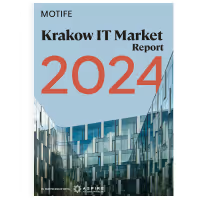

View all job offers
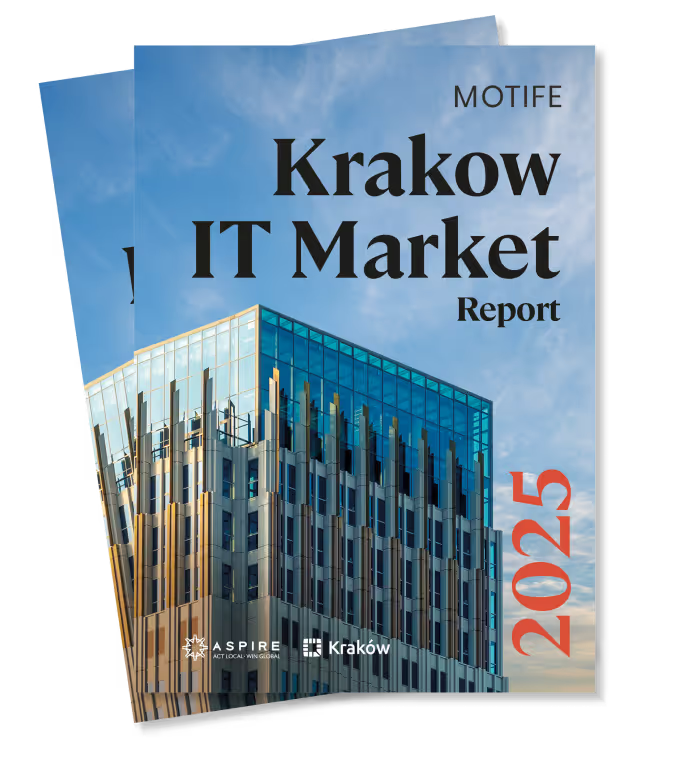
Download the report

Read the full client story
